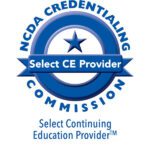As I think about what companies need from employees today, I think they need people who can adapt to the ever-changing landscape of work—and life—that we all face. I could give you the example of a 100-year pandemic but that one is too obvious. Just think about what you were doing five years ago in your work and what you are doing now. For most of us, things have changed a lot. For me, the explosion of cloud-based options for documents, photos, and more is one big change.
When I am working with a client, I start by trying to get a sense of their skills and the value they add to the workplace. I am not as concerned about their formal education as I am about the skills they have developed over the years and their ability to grow in a job.
Employers tell me to give them a person who shows up every day, works hard, and asks questions when they don’t know how to do something. They will train them to do nearly any job. I would add that the ideal employee would also have a high Adaptability Quotient (AQ). Bosses hire people to solve problems, but the problems change and the person needs to adapt to new problems—otherwise bosses will find someone else to solve the problem.

What is Adaptability Quotient?
What is AQ? Natalie Fratto has a great TedTalk (see below) where she describes how she determines which startups she wants to invest in by measuring their ability to adapt. I think her lessons are valuable for any person looking for work and wants to stand out in their next job. She looks at three things:
How well does a person react, or adapt, to obstacles? We all face obstacles every day. Sometimes it is as simple (or difficult) as not being able to log into Zoom. It might require updating Zoom, restarting the browser, restarting the computer, or something more advanced like figuring out how to change the settings for your laptop camera. Are you able to figure it out or do you just quit and say you can’t do it?
A person with a high AQ will figure it out. But how do you find out if a person can deal with obstacles? Natalie suggests asking “what if…?” questions.
- What if you come to work and find out the supplies did not arrive yesterday?
- What if the person you are working with calls in sick and you have a major project you are working on together?
These questions give insight, not into what you did before (behavioral questions) but into what you might do in the future.
What can you UNlearn in order to be more adaptable?
Her second way of determining a person’s AQ is to see if they are “unlearners.” An unlearner is a person who challenges the accepted norm of how we do things. I think this trait has been one of my strengths over the years working with students in high school or college. There were often policies and procedures everyone was supposed to follow. But every once in a while I would have a student I wanted to try something different with. For example, fitting a student into a slightly different class schedule so they could attend two periods of a vocational-technical program that was three periods long.
I wanted to find creative solutions, outside the box, in order to better serve those students.
So the question is, what can you UNlearn in order to be more adaptable? Hmmm….
Exploration determine adaptability quotient
Her third way to determine a person’s ability to adapt is to look for people who are always seeking new information—exploring new ways of looking at a situation. I think about all the cloud-based options for storing data and sharing information and how they have evolved. I am always asking myself, how can I free up more space on my computer and adapt what I do so that I can access documents from any device? Where else might I adapt in my work with this knowledge? Another hmmmm….
So when we are working with our clients, I believe we should be exploring their ability to adapt. Then to encourage them to take an employer’s mindset to adapt to the situation and be an asset to the company using their AQ as one of their “intelligences.”
If you would like to watch Natalie’s Ted Talk, check it out here.
Jim Peacock is the Principal at Peak-Careers Consulting and writes a weekly email for career practitioners. Peak-Careers offers discussion-based online seminars for career practitioners focused on meeting continuing education needs for CCSP, GCDF and BCC certified professionals as well as workshops for career practitioners and individual career coaching.
He is the author of A Field Guide for Career Practitioners: Helping Your Clients Create Their Next Move and The Adventure of Finding Me in New Zealand. He is also the recipient of the 2020 Kenneth C. Hoyt Award from the National Career Development Association and the Mid-Atlantic Career Counseling Association’s Professional Contribution’s Award in 2020.
Sign up to receive my TOP 10 TIPS WHEN WORKING WITH AN UNDECIDED PERSON. You will also receive the career practitioner’s weekly email on a variety of career topics, industry news, interesting events, and more. (Sign up)



Leave a Reply